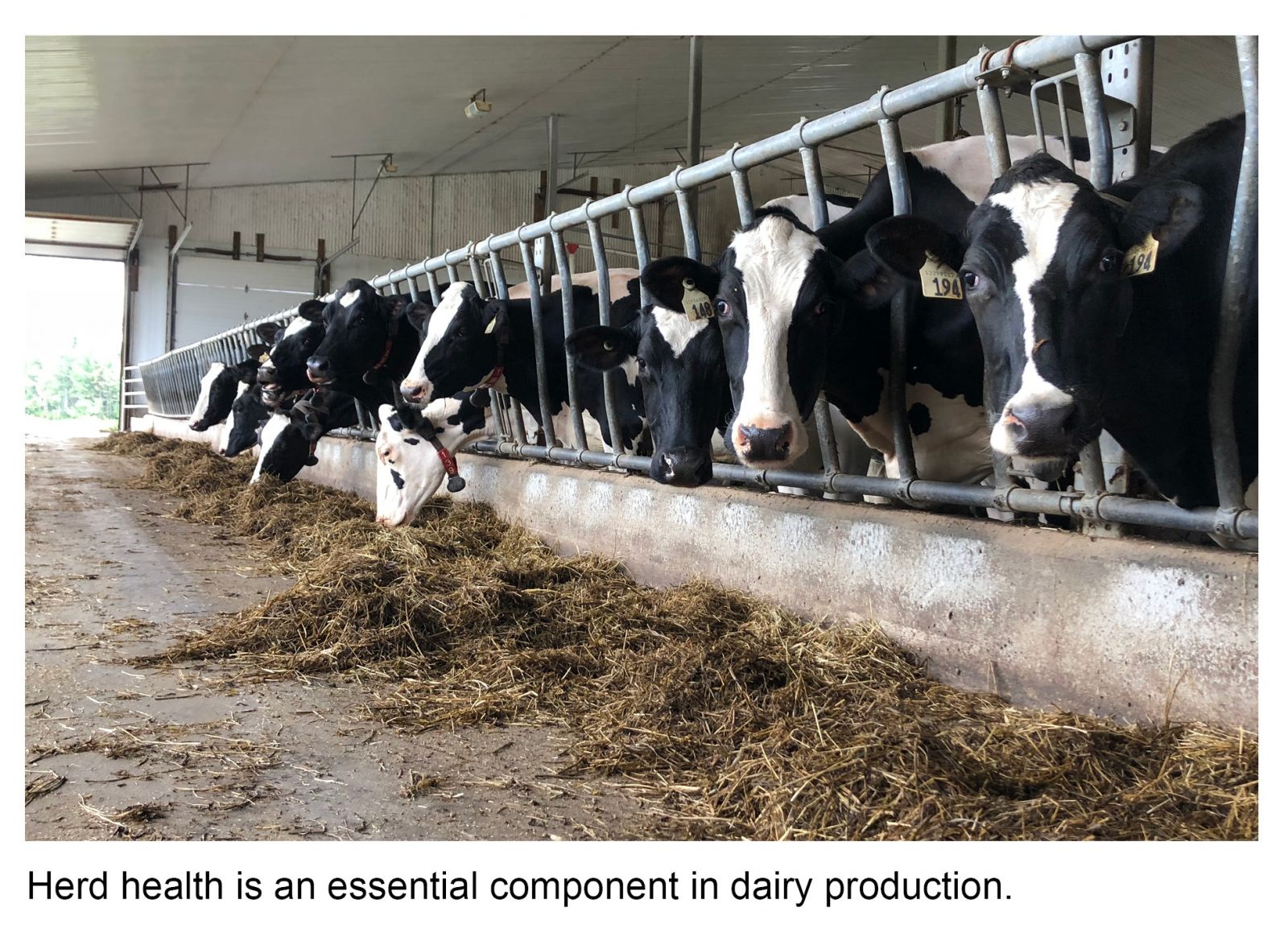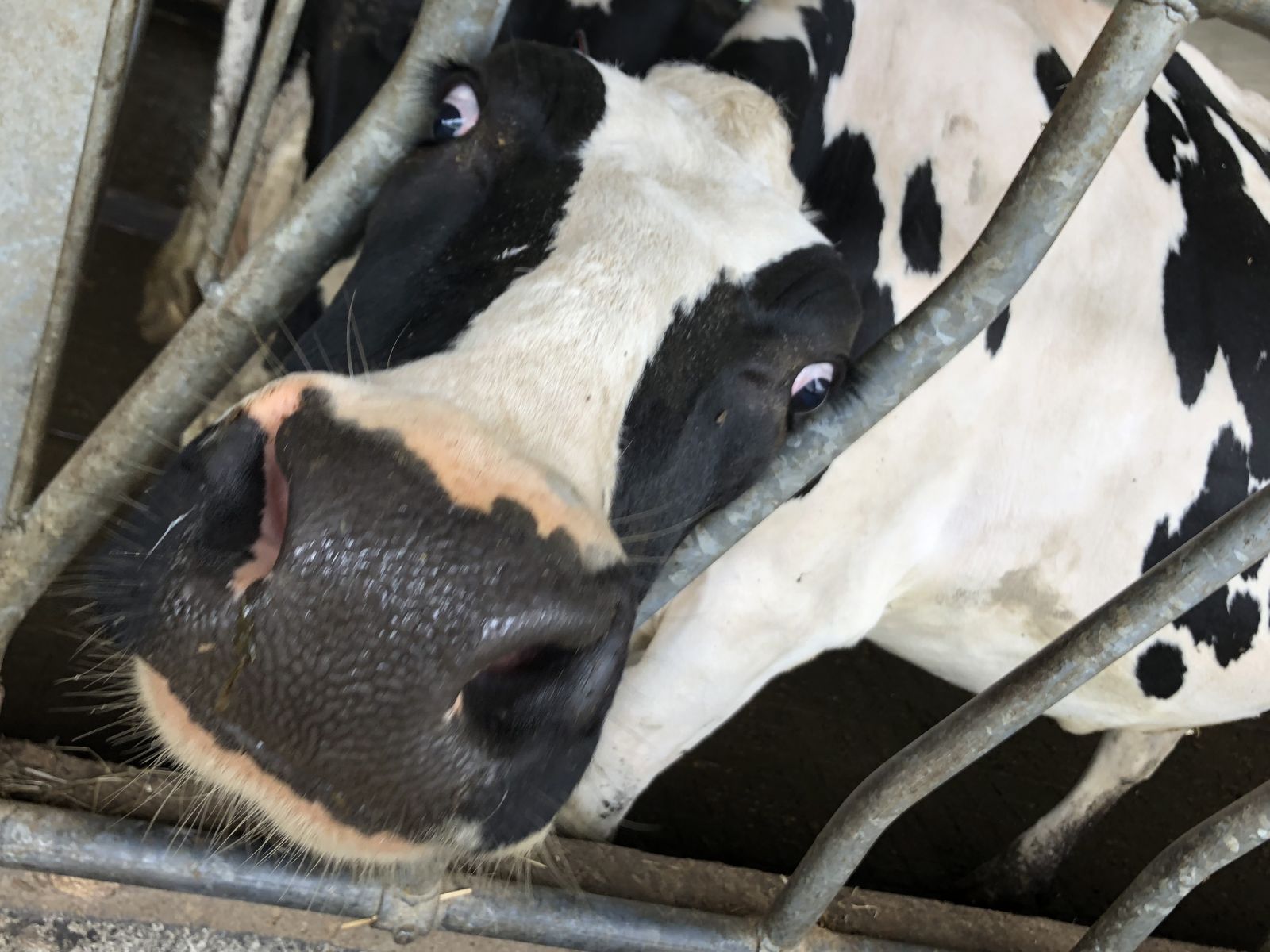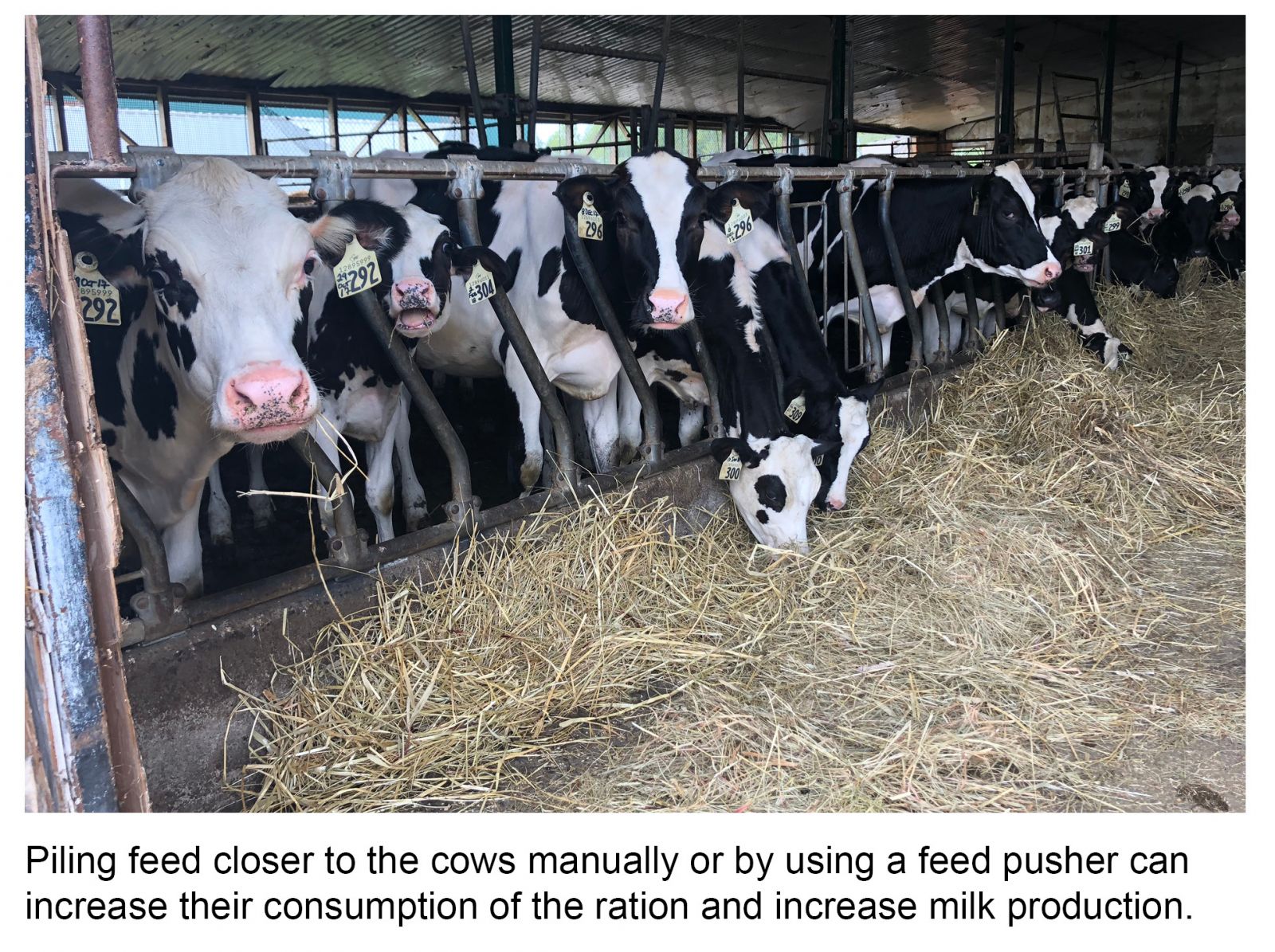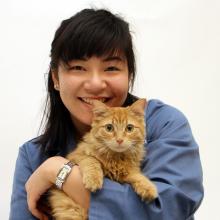Before I got into vet school, I never really envisioned myself working with species other than dogs and cats. I had no experience with cattle or horses prior, so you could imagine me struggling in the beginning. It was quite daunting to handle horses and cows, and we have to start with the basics – putting on halters, tying knots and learning safety precautions. Thankfully I have amazing colleagues and mentors who are experienced with large animals and willing to teach. Over time I have become more comfortable working with cows and horses and they certainly have a special place with me as I develop my career as a veterinarian.
Herd health is an important aspect of veterinary medicine. Compared to individual medicine, it provides a much bigger picture when it comes to farm management. Thanks to Haasen Farm, I had the opportunity to tag along with their herd health veterinarian during their visits. This allowed me to reinforce what I’ve learned in the past three years and put everything into practice. Here are a couple of notes I gathered during my time there.
 1. Partner with the farmers to achieve the best possible care
1. Partner with the farmers to achieve the best possible care
Let’s be honest, veterinarians can’t do this alone. Farmers are essentially our connections to the animal. They spend the majority of their time tending to the animals’ needs – feeding, maintaining the environment, observing their behaviour, etc. Without them, we may not be able to perform our work as efficiently. When I was at the farm, I was very impressed by how well farmers know their herds. They were able to provide the information the veterinarian needed. Together as a team, we were able to efficiently go through the herd!

Sometimes we forget how good our senses are and we doubt ourselves with the findings, just like my first time doing rectal palpation – “The round tissue slightly on the side after following the structure that drops down”. Yup. However, with time and practice, you get better at it. The information you gather will help you come up with differential diagnoses and a subsequent plan for the animals.
 3. Don’t forget about the environment
3. Don’t forget about the environment
Little things can make a huge difference. We need to pay attention to the environment, listen to the farmers, and work with them to achieve optimal health and welfare.
Overall, it was a very valuable learning experience at the Haasen Farm. It reminds me of the diversity we have in veterinary medicine, and that there are many career options out there waiting for us! Even if you don’t have a lot of experience now, give it time and explore.
